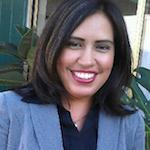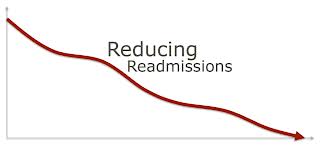Healthcare is very different from most other industries. It is fragmented, conservative, highly regulated, and hierarchical. It doesn’t follow most of the usual business rules around supply and demand or consumerism. An important aspect of my role at Microsoft is helping my colleagues at the company understand the many ways that healthcare is different from other “businesses”.
Healthcare is very different from most other industries. It is fragmented, conservative, highly regulated, and hierarchical. It doesn’t follow most of the usual business rules around supply and demand or consumerism. An important aspect of my role at Microsoft is helping my colleagues at the company understand the many ways that healthcare is different from other “businesses”.
 Having said that, there are a lot of things that healthcare could learn from a company like Microsoft or other technology companies. When someone asks me what it’s like to work at Microsoft, I often say what someone told me when I started at the company 13 years ago. Microsoft is like a global colony of ants, working independently and yet together but always “neurally” connected by enabling technologies. At any given moment, I can be connected to any one of my 100,000 fellow workers or tens of thousands of partners with just a couple of clicks or taps on a screen. I have tools that show me who’s available, what they do, what they know, and where they are. I can engage in synchronous or asynchronouscommunication and collaboration activities with a single member or multiple members of my team using messaging, email, voice, video or multi-party web conferencing. We can use business analytics tools, exchange information, review documents, co-author presentations, and collaborate with our customers and partners anywhere in the world from anywhere we might be. Our business moves, and changes, at the speed of light. It is the rhythm of the industry.
Having said that, there are a lot of things that healthcare could learn from a company like Microsoft or other technology companies. When someone asks me what it’s like to work at Microsoft, I often say what someone told me when I started at the company 13 years ago. Microsoft is like a global colony of ants, working independently and yet together but always “neurally” connected by enabling technologies. At any given moment, I can be connected to any one of my 100,000 fellow workers or tens of thousands of partners with just a couple of clicks or taps on a screen. I have tools that show me who’s available, what they do, what they know, and where they are. I can engage in synchronous or asynchronouscommunication and collaboration activities with a single member or multiple members of my team using messaging, email, voice, video or multi-party web conferencing. We can use business analytics tools, exchange information, review documents, co-author presentations, and collaborate with our customers and partners anywhere in the world from anywhere we might be. Our business moves, and changes, at the speed of light. It is the rhythm of the industry.
I sometimes wake up in the morning and think, “If only my clinical colleagues could avail themselves of similar tools and technologies how different could
 healthcare be?” I’ve been using information communications technologies in my daily work for so long that I almost take for granted that this is the way work is done. But I also know that in the real world of healthcare the journey is still quite different. That hit home again last week when I asked my mother’s family doctor for a copy of a report on an imaging study he had ordered. It took five phone calls to make something happen and my only choice was to receive the report via fax machine. Fax machine, really?
healthcare be?” I’ve been using information communications technologies in my daily work for so long that I almost take for granted that this is the way work is done. But I also know that in the real world of healthcare the journey is still quite different. That hit home again last week when I asked my mother’s family doctor for a copy of a report on an imaging study he had ordered. It took five phone calls to make something happen and my only choice was to receive the report via fax machine. Fax machine, really?
In my heart I know it is not totally as bleak as it seems sometimes. I could cite numerous examples of hospitals, health systems and clinics around the world that are using our latest technologies to improve health and healthcare delivery. I am well aware of the forces in retail health, specialty and concierge medicine, travel health, tele-health, mobile apps, wearable devices, sensors, remote monitoring, population health and health reform that are disrupting, and will continue to disrupt business as usual in the industry. That disruption can’t happen soon enough, although making significant changes to an industry as large and complicated as healthcare doesn’t happen overnight.
While we wait, I just want clinicians, managers, healthcare executives, and others who work in the healthcare industry to know that there are some readily available technologies that, even today, can significantly improve the way clinicians do their work and healthcare is delivered.









